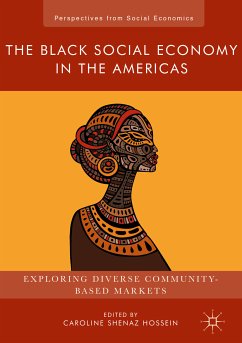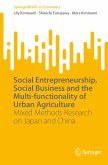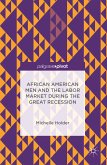This pioneering book explores the meaning of the term "Black social economy," a self-help sector that remains autonomous from the state and business sectors. With the Western Hemisphere's ignoble history of enslavement and violence towards African peoples, and the strong anti-black racism that still pervades society, the African diaspora in the Americas has turned to alternative practices of socio-economic organization. Conscientious and collective organizing is thus a means of creating meaningful livelihoods. In this volume, fourteen scholars explore the concept of the "Black social economy," bringing together innovative research on the lived experience of Afro-descendants in business and society in Argentina, Brazil, Canada, Colombia, Guyana, Haiti, Jamaica, and the United States. The case studies in this book feature horrific legacies of enslavement, colonization, and racism, and they recount the myriad ways that persons of African heritage have built humane alternatives to the dominant market economy that excludes them. Together, they shed necessary light on the ways in which the Black race has been overlooked in the social economy literature.
Dieser Download kann aus rechtlichen Gründen nur mit Rechnungsadresse in A, B, BG, CY, CZ, D, DK, EW, E, FIN, F, GR, HR, H, IRL, I, LT, L, LR, M, NL, PL, P, R, S, SLO, SK ausgeliefert werden.









